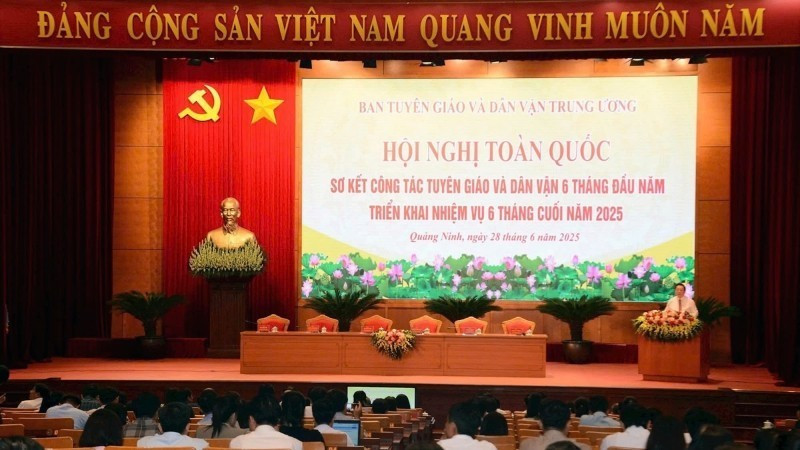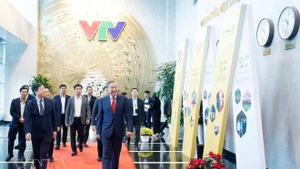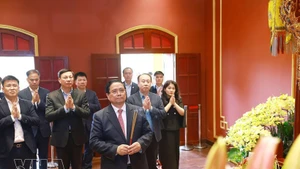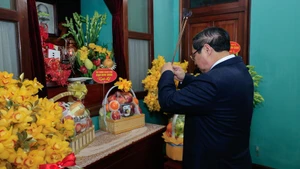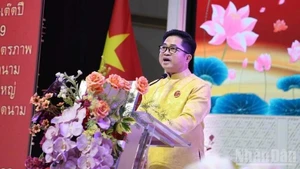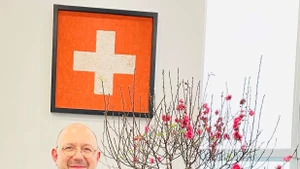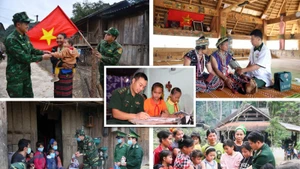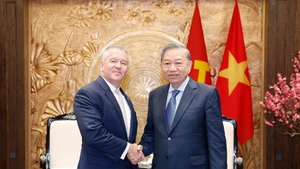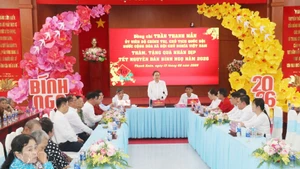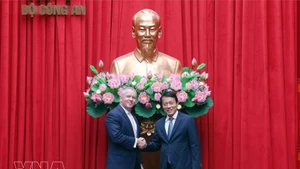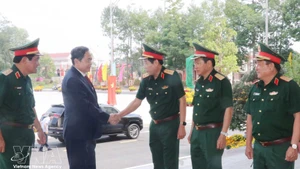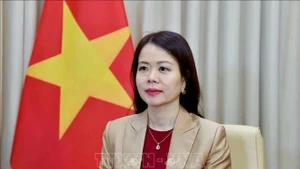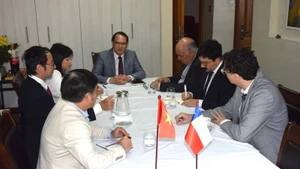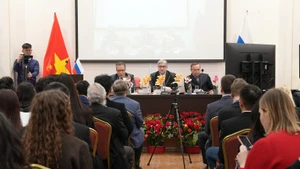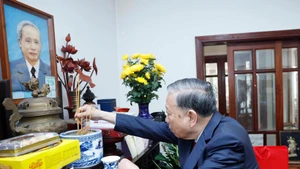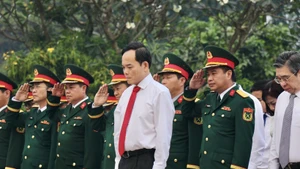General Secretary To Lam affirmed that the Party’s communication and mass mobilisation work has strategic significance, is “an indispensable bridge between the Party and the people”; is a close link, helps to communicate the Party’s guidelines and policies to the masses, strengthens the great national unity bloc, is the “source”throughout all Party guidelines.
In the new period, the General Secretary requested that communication and mass mobilisation work, first of all, must resolutely and persistently protect the Party’s ideological foundation and orient public opinion. The communication and mass mobilisation sector must strengthen the fight against erroneous, hostile arguments, and distortions of the Party’s guidelines and policies; “resolutely criticise and reject viewpoints that are contrary to the nature and basic principles of Marxism-Leninism”.
At the same time, it is necessary to “strengthen political and ideological education measures, strongly innovate political theory work, study Party directives and resolutions; study Marxism-Leninism, Ho Chi Minh's ideology, morality and style, to create resistance and the ability to fight against erroneous and hostile viewpoints.
In the context of multidimensional information on cyberspace, the General Secretary requested to closely monitor social media, strictly handle acts of spreading fake news, “distorting and sabotaging” the Party and the State; at the same time, it is necessary to regularly grasp the thoughts and public opinions of the people to promptly refute erroneous and hostile viewpoints right from the grassroots.
According to the General Secretary, the work of orienting public opinion needs to have proactive solutions, through each Party cell and Party member to propagate and concretise the Party’s policies, in order to create clarity, solidarity and consensus in the whole society. “Propagate, thoroughly grasp, and raise awareness for cadres, Party members and soldiers about the role and importance of political theory”.
In the current period, many new issues arise from practice, the General Secretary requested to strengthen theoretical research; innovate thinking and implementation methods. “It is necessary to strengthen theoretical study, apply theory to work”; must consider “the study of political theory as both an urgent and regular requirement and a long-term strategic one”. Theory must originate from the vivid reality of the Vietnamese revolution.
“All practical and combat activities must have a theoretical basis, be oriented and guided by theory”. It is necessary to “innovate thinking and working methods” and “apply technology” to communication and mass mobilisation work, in research and study of theory, in the direction of promoting positivity, self-awareness, self-study, self-education...
The General Secretary especially emphasised the key role of the team of cadres doing ideological and mass mobilisation work. It is necessary to build a team of “loyal” communication and mass mobilisation cadres, close to the people, good at mobilising the masses, “must know how to persuade, mobilise and organise the people to participate in protecting security and order”.
These cadres must constantly stick to reality, “be close to the people, promote the role of the people in protecting security and order”; know how to listen, know how to rely on the people, and at the same time need to always set an example for the masses and convince the masses. Cadres doing communication and mass mobilisation work need to cultivate skills, from thinking, expression to the ability to access and use modern information technology, and at the same time must know how to innovate themselves.
Regarding mass mobilisation, the General Secretary emphasised the spirit of “skillful mass mobilisation”, which means mobilising the people in a flexible, practical and effective way. They must know how to strengthen skillful mass mobilisation work and develop the great national unity bloc. The General Secretary paid special attention to this work for the police force, emphasising that “the nature of police work is mass mobilisation work”.
Cadres doing communication and mass mobilisation work must “use their own pure revolutionary morality, simple, close, sincere lifestyle, dedication, and willingness to sacrifice in their work and combat to persuade and mobilise the masses, and the best motto and method of mass mobilisation is to respect the people, be close to the people, and serve the people”; at the same time, “authorities at all levels should promote mass mobilisation work; issue appropriate policies to build and firmly consolidate the great national unity bloc”; focus on encouraging advanced models, “popularising good models and new ways of doing things; proactively discovering, promptly praising, and replicating advanced models, good people, good deeds”.
Regarding the spirit of great national unity, in terms of theory, inheriting Ho Chi Minh’s thought, the General Secretary once again affirmed that the tradition of great national unity is the core strength of the Vietnamese revolution. The Party and State are always “determined to maintain and promote the strength of great national unity”. Therefore, communication and mass mobilisation work must be considered the “red thread”, the “source” throughout the process of mobilising the masses, increasing practicality, and strongly transforming digitally so that the Party’s guidelines “penetrate deeply into the hearts and minds” of cadres and people”.
Paying great attention to the Party’s communication and mass mobilisation work, the General Secretary emphasised that the Party’s communication and mass mobilisation sector needs to “focus all its efforts” to successfully carry out the tasks assigned by the Party; in which the communication and mass mobilisation cadres must wholeheartedly serve the Fatherland and the people, contributing to the successful implementation of the country’s strategic goals in the new era.
